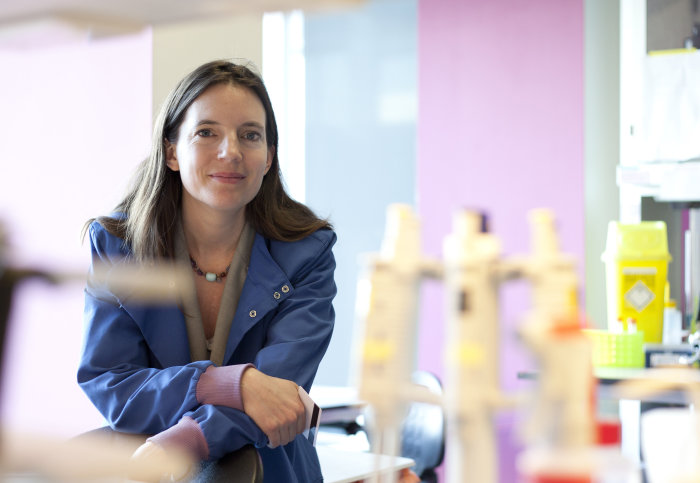Imperial bioengineer elected to National Academy of Engineering

Bioengineer Professor Molly Stevens has been formally inducted into the National Academy of Engineering (NAE) in the US.
Professor Stevens was inducted alongside Imperial alum Sir Sam Jonah (MSc Resources Engineering 1979) the executive chairman of Jonah Capital.
At the annual meeting in Washington DC, Professor Stevens and Sir Sam were elected as foreign members alongside 16 others, including entrepreneur James Dyson.

Professor Stevens was elected for contributions to materials-based approaches for tissue regeneration and biosensing.
Professor Stevens said: “I am truly humbled to be elected to the NAE and very grateful to our numerous collaborators and fantastic team members who contribute to the research that we do.
"We are committed to advancing the design of diagnostics and materials for regenerative medicine so that these innovations can reach the patients that most need them both in the developed and the developing world."

Sir Sam, from Ghana, was elected for leadership and technical contributions in advancing the mineral industry in Africa.
Sir Sam said: "No experience I have had in my life has been so humbling. I am ever appreciative of the tremendous impact Imperial College made on me at a most decisive phase of my career."
James Dyson – whose foundation funded Imperial’s Dyson School of Design Engineering – was elected for development of advanced technologies and innovative products and for contributions to design and engineering education.
Membership of the NAE acknowledges engineers who have made an ‘outstanding contribution to engineering research, practice, or education’ and to ‘the pioneering of new and developing fields of technology’.
Future healthcare

President Alice Gast and Mr Antony Phillipson, HM Trade Commissioner for North America and British Consul General in New York, hosted an event to celebrate science and innovation partnerships between the UK and US.
The event ‘Future Healthcare: Designing materials to heal the body’ saw President Gast and Professor Stevens speak with academic and industry leaders, and local alumni and friends about Imperial's world leading healthcare research.
Professor Stevens gave a presentation of her work on innovating biomaterials' design for regenerative medicine and biosensing.
Mr Phillipson said: “I was delighted to host President Gast and Professor Stevens at the Consulate recently for a roundtable event where we discussed future opportunities for collaboration with a number of New York-based academic institutions and thought leaders.
"The UK and the US are two of the world’s scientific research powerhouses: we are home to all of the world’s top 10 universities – including Imperial College, of course – and have won over 358 Nobel Prizes between us.
"Together, our cutting-edge collaborative research is accelerating detection of diseases and improving outcomes for our ageing societies, and our scientists share ideas, data, and innovation across borders. This is vital to the future prosperity and security of the people of both our countries and those across the world.”
Professor Stevens has worked with MIT engineers to develop a simple and sensitive urine test that produces a colour change in urine to signal growing tumours in mice.
Tools that detect cancer in its early stages can increase patient survival and quality of life.
The findings were published in Nature Nanotechnology.
Article text (excluding photos or graphics) © Imperial College London.
Photos and graphics subject to third party copyright used with permission or © Imperial College London.
Reporter
Stephen Johns
Communications Division